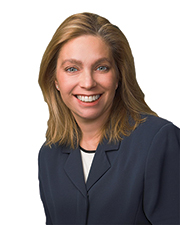Who is safeguarding your 1031 funds? - by Patricia Flowers

Who’s holding your money and how are they protecting it? A major role of a Qualified Intermediary is to preserve taxpayer funds during a 1031 Exchange. Since Qualified Intermediaries are not regulated by the federal government or by most states, financial assurances, expertise, company strength and reputation are critical factors.
Fraud and cybercrime, particularly involving bank wire transfers for real estate transactions, continue to increase at a startling rate. As an investor or advisor directly involved in real estate transactions and 1031 Exchanges, being aware and attentive is critically important to you and your clients’ funds and to your overall business.
More and more criminals are exploiting the speed, convenience and anonymity of the Internet. The long known scams of phishing emails are consistently elevating to new and more deviant levels. The fraudsters are getting smarter and bolder, and attempts are growing with increased vigor as they now try to intercept funds used in everyday business transactions.
With federal and state tax laws requiring investors to pay up to 1/3 of their gains in tax-es upon sale of investment real estate, Section 1031 Tax Deferred Exchanges are utilized more now than ever. This tax code requires that a Qualified Intermediary (QI) hold sale proceeds during an Exchange to avoid constructive or actual receipt by the taxpayer, so as not to void any allowable tax deferral.
Surprisingly, there are no Federal requirements regarding the security that QIs must have in place for the monies they are holding for their customers. Therefore, it is critical to choose a Qualified Intermediary that is informed and vigilant, and one that has proactive protections in place to thwart cyber criminals.
Protective measures that should be in place with your QI to safeguard your real estate funds include secure signing and disbursement procedures, taxpayer verification, wiring confirmations and corporate assurance.
Taxpayer Verification/Secure Signing: We at IPX1031 implement a multitude of digital security measures, including the use of a secure electronic document-signing platform. This incorporates processes, including multi-step authentication, which are designed to verify the signor of documents.
Disbursement and Authorization: Disbursement of exchange funds require written au-thorization from by taxpayer and subsequently dual authorization for release, con-trolled by our separate banking division.
Independent Source Confirmation: Brokerages, law firms and title companies should beware… Fraudsters continue to target real estate transactions, hacking into private and business accounts and resending fraudulent disbursement emails to purposely misdirect (and ultimately steal) deposits, purchase funds, closing proceeds or commissions.
Every wire request is independently confirmed by IPX1031 before release of funds - calls to verify are made to a known source, using information found in original contact communications, executed contract agreements, or the like. Any discrepancy or last minute change to wire instructions is a “cause for pause”, to stop and re-confirm before wiring.
Corporate Assurance: Safety and security of funds must be a matter of paramount importance for any QI. As part of a national publicly traded and Fortune 500 company, we have access to secure systems and cyber security professionals, providing sophisticated technologies to protect exchange funds. All this is backed by a $100 million Fidelity Bond and a separate $50 million Written Performance Guaranty. Along with the financial strength and resources of our parent company, funds will be safe, secure, and available when you need them.
Ask your QI about their cyber crime prevention policies and vigilance to secure all of their customers’ exchange funds. These protective measures are a critical component of any financial transaction you enter into…your business depends on it!
In fact, it’s everyone’s responsibility. Many individuals and businesses underestimate the threat online fraud poses to their profitability, cash flow and reputations. Take simple steps on the road with mobile devices and WiFi connections, in the office and at home to reduce vulnerability and to keep your computers, your information and your business dealings secure.
As the industry leader, we offer creative tax strategies with proven solutions for building wealth, preserving profits and maximizing investment dollars through a 1031 Tax Deferred Exchange. When you want the best, expect it from IPX1031, a leader in what matters – expertise, safety and security.
Patricia A. Flowers is Vice President for Investment Property Exchange Services, Inc. (IPX1031), Boston, Mass.
Newmark negotiates sale of 10 Liberty Sq. and 12 Post Office Sq.

Four tips for a smooth 1031 Exchange - by Bill Lopriore

Make PR pop by highlighting unique angles - by Stanley Hurwitz

How COVID-19 has impacted office leasing - by Noble Allen and John Sokul








.png)
